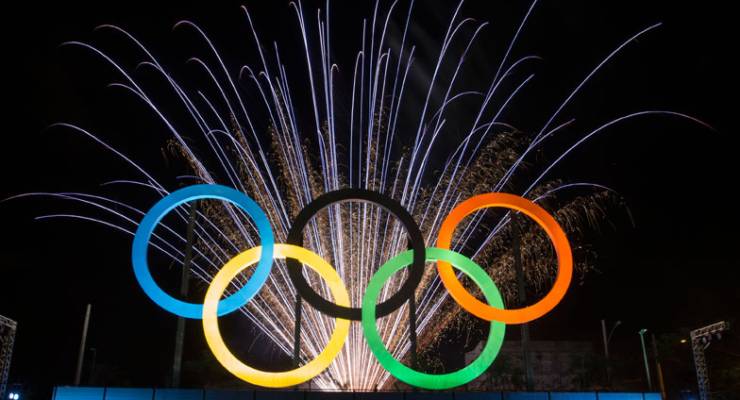
There are certain tired inevitabilities about the coverage and discussion of the Olympics and our performance: the hyperbole, the one-eyed view, the anchors and hosts getting it wrong, the complaining about … well, nearly everything. But the Great Australian Whinge(TM) gold medal must surely go to one of the “Why didn’t we win more baubles?!” contestants.
First we have the rent-seekers demanding that we need more money for elite sport, as if the money already spent were not enough. They will invoke national glory and trickle-down participation reasons for this, as well as the need to “match” other countries, which have replicated our Australian Institute of Sport and high-performance models. The most insidious proposal is the copying of Great Britain’s lottery funding system — with nary a mention that gambling and the consequent match-fixing is the greatest threat to the integrity of sport. There is also an assumed right of sport to be provided ever-increasing funding without proof of public benefit.
Then we have the fee-for-service armchair whiners with their line of why didn’t my tax dollars get more gold medals? This ugly triumphalism, reminiscent of Nike’s infamous “second is first loser” slogan devalues the sheer brilliance exhibited by getting to the Olympics in the first place. Our value system is wrong if we can’t celebrate amazing performances such as PBs (personal bests). For example in track and field, many ran/jumped/threw better than ever before. Ella Nelson ran a PB in the 200m, Madeline Heiner-Hills and Genevieve LaCaze in the 5000m, and we could go on … Sadly, without the medal, great performances are apparently meaningless.
Following closely behind are the photo-op seekers, the politicians, who will no doubt announce or support some form of review/inquiry into elite funding (which will say the same thing the last dozen have). The pollies will get their picture and announcables, all while rubbing shoulders with Olympians, and little will change.
Also making a run are the “Monday-morning experts” trotting out their reasons for why we did so badly. They are suddenly doyens in 42 sport disciplines, elite training and psychology, team dynamics and doping regimes.
Appropriately last is the group with perhaps the greatest right to complain: the sports that were pegged as losers by the Australian Sports Commission’s Winning Edge funding model and not supported. If we’d spread the money more widely and fairly, instead of an all-eggs-in-one-basket strategy, we might have got more lucky. The brave predictions from the ASC and other Olympic officials that we’d win up to 16 gold medals sure look dumb now.
The problem with the great whinge is that it sends the message that winning is all that matters — fail and we are not interested. This is an awful message to be sending all of us, kids included, who will play a sport on the weekend, do our best and dream of doing better.
Ultimately, we are forgetting that the reason we like sport so much is the uncertainty of outcome. We don’t want a “sure thing”, we want the emotional roller coaster of a close-run win. But if there is the promise of winning there is also the probability of losing. Thus, the only sure thing in sport is that we’ll argue about why we didn’t do better.
*Dr James Connor, UNSW Canberra, researches sport and is funded by WADA to look at the social reasons for doping







The Olympic mania continues….this morning’s TV news was dominated by coverage of Oz athletes returning to the homeland. While it may qualify as a news story (of minor importance), to have it as the main focus on ABC & commercial stations was testing the limit of viewer tolerance.
Since when has a Qantas aircraft taxiing for several minutes constituted news or warranted live coverage?
Well put. And our infantile obsession with winning and baubles, the conviction that we’re entitled to be first, not only short-changes our own athletes but also shows an appalling lack of grace towards the achievements of our opponents.
Perhaps we have been set up by the Sports Commission, setting high medal counts which we didn’t achieve, therefore we need more money. Perhaps the initial assessments were way out, and the results tend to suggest that is a better explanation.
For what purpose – show me the money!
“Our value system is wrong if we can’t celebrate amazing performances such as PBs (personal bests). ” Why should we be celebrating these, exactly, if they’re not better than everyone else’s? Everybody in Australia has a PB in, say, the 1500m but the people we pay to go to the Olympics are chosen because their PBs are better than those of the rest of us (my own PB in the 1500m is, oh, probably about 900m.)
The point I’m struggling towards is that having the apparently “right” value system that does celebrate “amazing performances such as PBs” would not lead to us sending anybody to international competitions on our behalf at all. The fact that we do send people suggests we’re after something else (and our East German funding model surely reinforces that suggestion.)
And if it’s a message to the kids that you want, then let sports self-fund entirely.
AT least their arrival gave Talcum a chance to use his (alleged) talent for soaring rhetoric and the actuality of his prolix verbosity.